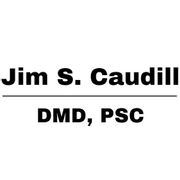How to Decide Between Dental Implants & Dentures

If you have one or more missing teeth, you might be wondering how to restore your smile. Dental implants and dentures provide effective ways to improve the appearance and function of your teeth through replacement, but there are significant differences between the two types. Here's a closer look at each to help you plan your dental future.
Dental Implants
Implants consist of titanium rods surgically implanted into the gums and jawbone. They feature abutments at the tops of the rods, where a dentist will later attach crowns created by a dental lab to match the color, shape, and size of your natural teeth. Since dentists typically use a combination of anesthesia and sedation, the procedure is usually painless. Taking antibiotics and pain medication as directed, using rinses to keep the mouth clean, and eating soft and cool foods can accelerate healing and prevent discomfort during the initial recovery period.
Over the course of a few months following implantation, the metal rods will gradually fuse with the jawbone in a process known as osseointegration. This allows the bone to grow around the rods, holding them in place to provide a sturdy, permanent foundation for crowns. Once the false teeth are attached to the implants, you'll have the most realistic smile possible.

Implants are an excellent option for permanently restoring the teeth. They function almost identically to natural teeth, allowing you to chew foods and speak without difficulty. Additionally, since they fuse with the jawbone, they can prevent bone loss caused by missing teeth, which may preserve the facial structure. With proper care, including brushing and flossing the crowns as you would your natural teeth, implants may last a lifetime.
Dentures
Dentures are prosthetic devices typically made from acrylic, nylon, or resin. They consist of a durable yet flexible framework that resembles the gums and teeth, which a dental lab can create based on molds and impressions taken by your dentist. These devices are often removable, allowing you to take them out for cleaning or before going to bed, though some models are affixed to dental implants for increased stability. They are available in full or partial versions, meaning they can replace an entire set of missing teeth or smaller gaps.
Dentures are minimally invasive, making them an excellent alternative for people who can't safely undergo surgical procedures. They may also provide a more practical and affordable means of restoring several missing teeth at one time. Since they're removable, they can be cleaned thoroughly with a soft-bristled brush and nonabrasive paste to prevent scratching.
Since they form-fit your mouth, they're usually quite comfortable, allowing you to speak clearly and eat many of the foods you love after an initial adjustment period. However, foods that are sticky or need a lot of biting force, such as caramel and apples, may pose problems.
To learn more about whether dental implants or dentures are the right choice to replace your missing teeth, turn to Jim S. Caudill, DMD, PSC. This dentist provides restorative, preventative, and cosmetic dentistry to clients throughout Hazard, KY. Call (606) 436-3432 to schedule a consultation and visit the website to learn more about how they'll improve your smile and help you maintain your dental health.
About the Business
Have a question? Ask the experts!
Send your question

